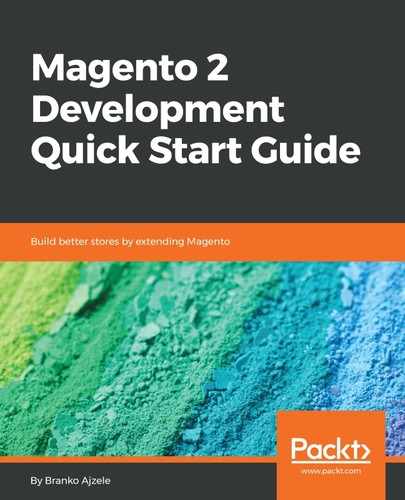At the very start of our journey, we mentioned Magento source files being distributed via three different channels: a source file archive, a Git repository, and a Composer repository. The Composer approach is the preferred way. Whether we are coding a module, library, theme or language component, using the Composer allows for an easy and automated dependency management, which is not possible otherwise. Magento's built-in Component Manager can update, uninstall, enable, or disable extensions installed via Composer. This implies sources from Packagist, Magento Marketplace, or other composer sources, as long as they have a composer.json file.
Moving forward, we are going to take a closer look at the following topics:
- Building a shipping extension
- Distributing via GitHub
- Distributing via Packagist
The terms module, extension, package, and component are used somewhat interchangeably in Magento. While developing, the module.xml implies module terminology, and registration.php implies component terminology. However, distributing them via Packagist and Magento marketplace often implies package and extension terminologies. Magento-wise, to all intents and purposes, they refer to the same thing.
